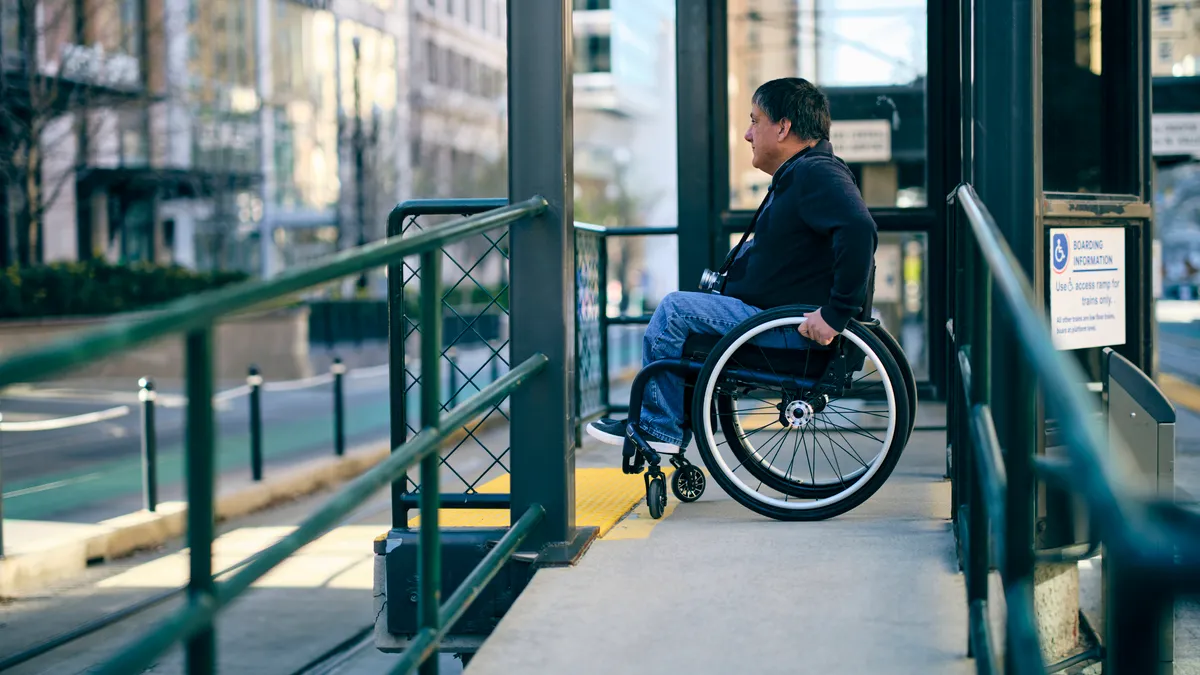Dive Brief:
- The U.S. Department of Transportation issued a final rule on Wednesday setting guidelines to improve accessibility for transit users with disabilities, which will go into effect Jan. 17, 2025.
- The rule complies with Americans with Disabilities Act requirements to set standards in line with guidance from the Architectural and Transportation Barriers Compliance Board, an independent federal agency charged with improving access to federally funded facilities.
- The rule applies only to new or rebuilt public transit stops and shelters in the public right-of-way, including boarding areas, pedestrian access paths, fare vending machines and signage.
Dive Insight:
The new rule intends to standardize accessibility for transit stops and related facilities, eliminating the need for state or local transportation departments or transit agencies to figure out the best solutions on their own, the DOT said in a press release. Uniform design will also benefit transit users, the transportation department said.
DOT received 88 comments to its rulemaking notice published Aug. 22. One of the greatest issues of concern among commenters was whether DOT should restrict transit boarding and unboarding areas that are colocated with vehicular and bike lanes, potentially creating conflicts for transit users with disabilities. DOT acknowledged those concerns but opted to not add further restrictions on transit station designs.
The agency’s latest ruling follows a number of other actions to improve accessibility for public transit users and other travelers. The 2021 infrastructure law made $1.75 billion available to state and local governments to help fund projects that repair, modify or retrofit public transportation rail stations for accessibility. In addition, DOT recently worked with Amtrak to increase accessibility at some of its train stations.
DOT also helped develop recommendations to make electric vehicle charging stations accessible, set rules requiring accessible lavatories on new single-aisle airliners and established training mandates for airline workers who assist passengers with disabilities who use wheelchairs.












